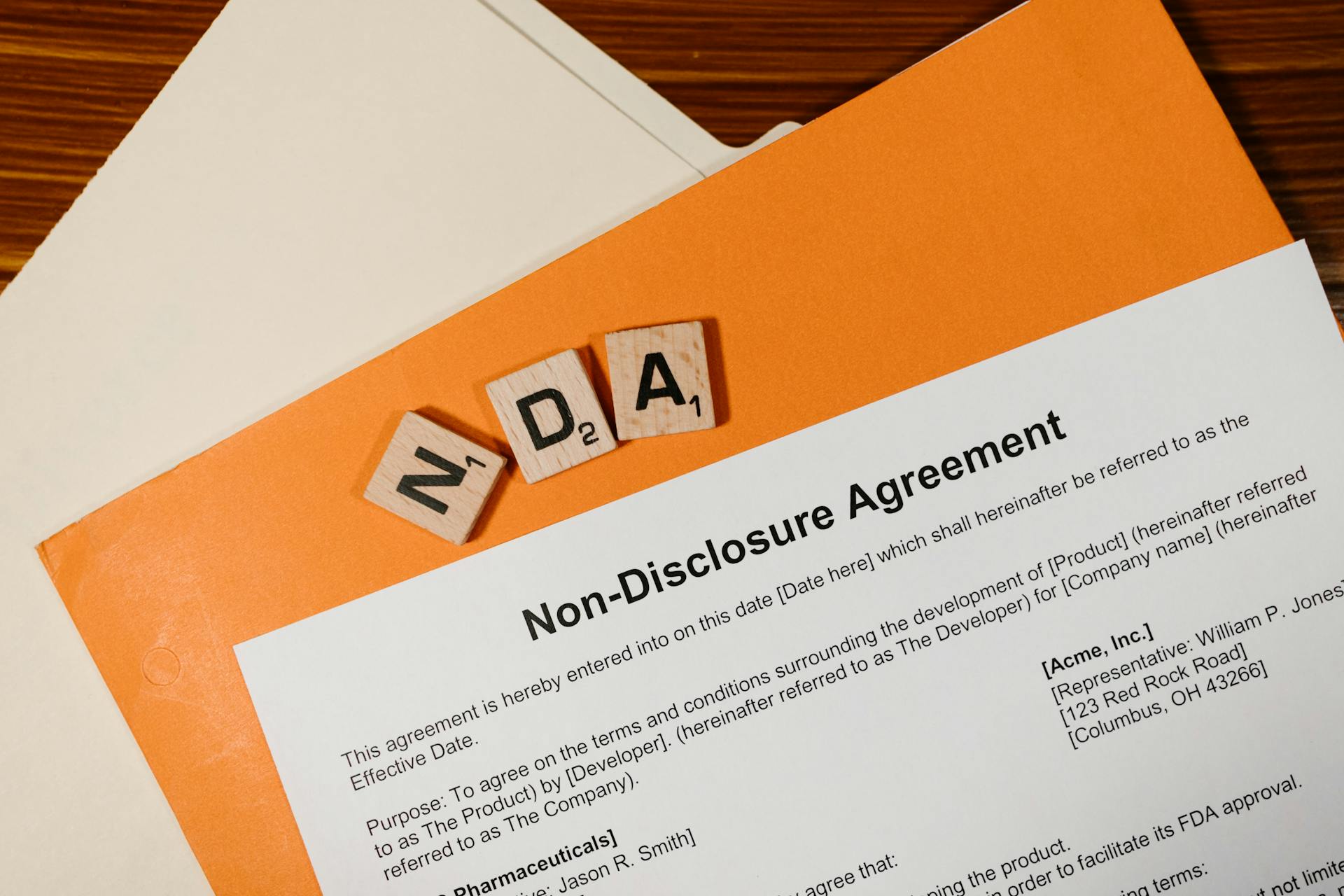
HIPAA laws in Oregon are designed to protect the confidentiality, integrity, and availability of protected health information (PHI). Oregon healthcare providers must comply with these laws to avoid penalties and fines.
Oregon healthcare providers are required to implement administrative, technical, and physical safeguards to protect PHI. This includes training staff on HIPAA policies and procedures.
Covered entities in Oregon must also conduct risk analyses and implement security measures to protect against unauthorized access to PHI. Regular audits and risk assessments are also required.
Oregon law requires healthcare providers to provide notice to patients in the event of a breach of unsecured PHI. This notice must be provided within 60 days of the breach.
HIPAA Laws in Oregon
HIPAA laws in Oregon are a bit more complex than you might think. Oregon HIPAA laws consist of both the federal HIPAA law and Oregon state privacy law.
Healthcare entities that create, receive, maintain, or transmit the information of Oregon residents must comply with both of these laws. This means they need to follow specific guidelines to protect patient data.
The HIPAA Breach Notification Rule requires healthcare organizations to report breaches that compromise the confidentiality, integrity, or availability of protected health information. This includes incidents like hacking, unauthorized access, theft, or loss of an unencrypted device.
If a patient's PHI is potentially affected by one of these incidents, the affected patient must be informed within 60 days of discovery. Breach notification letters must be mailed to affected patients.
Here's a summary of the breach notification requirements:
- Breaches affecting 1 – 499 patients: organizations must report these incidents to the HHS by March 1st of the following year.
- Breaches affecting 500+ patients: any incident that affected 500 or more patients must be reported to the HHS within 60 days of discovering the incident.
- Breaches affecting more than 250 Oregon residents: organizations must also report these incidents to the Oregon Attorney General.
HIPAA Compliance
Complying with HIPAA regulations is crucial for healthcare organizations in Oregon. To meet these requirements, healthcare providers, vendors, and Managed Service Providers (MSPs) must implement a HIPAA compliance program.
In Oregon, HIPAA laws consist of both the federal HIPAA law and Oregon state privacy law. This means that healthcare entities must comply with both federal and state regulations. Healthcare organizations must also conduct six self-audits annually to identify weaknesses and vulnerabilities in their security practices.
To ensure HIPAA compliance, healthcare organizations must implement written policies and procedures that are customized to their specific needs. These policies and procedures must cover HIPAA Privacy, Security, and Breach Notification requirements. It's also essential to train employees annually on HIPAA basics, policies, and procedures, as well as cybersecurity best practices.
Business Associate Agreements (BAAs) must be signed with each business associate vendor to ensure HIPAA compliance. A BAA is a legal contract that requires each signing party to be HIPAA compliant and responsible for maintaining their compliance. Common examples of business associates include electronic health records platforms, email service providers, online appointment scheduling software, and cloud storage providers.
Here are some key HIPAA compliance requirements:
- Implement a HIPAA compliance program
- Conduct six self-audits annually to identify weaknesses and vulnerabilities
- Implement written policies and procedures
- Train employees annually on HIPAA basics and procedures
- Sign Business Associate Agreements (BAAs) with business associate vendors
Complying with HIPAA Laws
Complying with HIPAA laws is a must for healthcare organizations, including healthcare providers, vendors, and managed service providers (MSPs).
To meet HIPAA regulations, healthcare organizations must implement a HIPAA compliance program. This program should include regular self-audits and remediation plans to identify and address security vulnerabilities.
Healthcare organizations must also conduct six self-audits annually to identify weaknesses and vulnerabilities in their security practices. These self-audits are crucial in ensuring that the organization meets HIPAA safeguard requirements.
To be HIPAA compliant, healthcare organizations must implement written policies and procedures that cover HIPAA Privacy, Security, and Breach Notification requirements. These policies and procedures should be customized for the organization's specific needs and reviewed annually.
Employee HIPAA training is also a requirement, and employees must be trained annually on HIPAA basics, the organization's policies and procedures, and cybersecurity best practices.
A HIPAA compliance program should also include business associate agreements with vendors that have access to protected health information (PHI). These agreements require vendors to be HIPAA compliant and responsible for maintaining their compliance.
In Oregon, healthcare organizations must comply with both federal HIPAA law and Oregon state privacy law. This means that healthcare entities that create, receive, maintain, or transmit the information of Oregon residents must comply with both laws.
To ensure compliance, healthcare organizations should have a clear understanding of the HIPAA regulations and requirements, including the minimum necessary standard, which requires sharing only the minimum amount of information necessary to achieve a goal.
Here are some key HIPAA compliance requirements:
- Implement a HIPAA compliance program
- Conduct six self-audits annually
- Implement written policies and procedures
- Provide employee HIPAA training
- Sign business associate agreements with vendors
- Comply with both federal HIPAA law and Oregon state privacy law
Designated Record Set
The designated record set is a crucial aspect of HIPAA compliance, and it's essential to understand what it entails. A designated record set includes a group of records kept by or for a covered entity.
These records may include documents used for billing purposes, such as medical claims or insurance information. They can also include enrollment documents, like patient registration forms.
In addition to billing and enrollment documents, a designated record set may also include medical records used to make decisions with and for the patient regarding treatment.
Top-Rated Healthcare Compliance Software
Here's the section on Top-Rated Healthcare Compliance Software:
Compliance software can help streamline HIPAA compliance processes, reducing manual errors and increasing efficiency.
Many top-rated healthcare compliance software solutions offer features such as risk assessments, audit trails, and policy management.
These features can help healthcare organizations identify and mitigate risks, maintain accurate records, and ensure policy adherence.
Compliance software can also provide alerts and notifications to ensure timely updates and maintenance of compliance processes.
Some top-rated healthcare compliance software solutions include Compliancy Group, ComplianceForge, and SimpleLTC.
These solutions have been recognized for their user-friendly interfaces, robust features, and cost-effectiveness.
Healthcare organizations can benefit from implementing these solutions to simplify HIPAA compliance and reduce the risk of non-compliance.
Protected Information
HIPAA laws in Oregon are designed to protect your personal health information (PHI). PHI includes identifiable information such as contact numbers, patient name, e-mail address, service or discharge date, social security number, birth date, insurance policy number, and address.
Your primary care provider must maintain confidentiality, but your neighbor does not. This means that if you share your PHI with your provider, they are bound to keep it confidential.
Here are some examples of identifiable information that are considered PHI:
- Contact numbers
- Patient name
- E-mail address
- Service or discharge date
- Social Security number
- Birth date
- Insurance policy number
- Address
Oregon healthcare providers may disclose your PHI in certain situations, such as if you sign a Release of Information form or if they are collaborating with other physicians in the same covered entity.
Release of Information
Oregon law requires that a medical release form be specific and detailed when allowing disclosure of medical information. The form must state the specific uses and limitations on the types of medical information.
To be valid, a medical release form must include the patient's name, date of birth, and the name or functions of the healthcare provider. It must also state a specific date after which the provider is no longer authorized to disclose the medical information.
A patient has the right to withdraw the release of information in writing at any time before the designated expiration date. If they do not withdraw their consent, the release immediately becomes void at the expiration date.
Here are the requirements for a valid medical release form in Oregon:
• State the specific uses and limitations on the types of medical information
• State the name or functions of the healthcare provider
• State a specific date after which the provider is no longer authorized to disclose the medical information
• Require specific authorization for release of records related to certain services
• Be clearly separate from any other language present on the same page
• Be executed by a signature that serves no other purpose than to execute the authorization
• Be signed and dated by the patient
Oregon healthcare providers may disclose your information in certain situations, including:
• A person indicated on a signed Release of Information
• A covered entity, such as a health insurance provider
• Other physicians in the same covered entity for reasons of collaborating to provide care
• Someone else is present, and you do not object to them sharing the information
• As otherwise permitted by federal law or court order
Frequently Asked Questions
What are the three rules of HIPAA?
According to HIPAA, the three essential rules for protecting patient data are Confidentiality, Integrity, and Availability, ensuring secure handling and access to sensitive health information. These rules safeguard patient trust and maintain the reliability of healthcare services.
What information cannot be released under HIPAA?
Under HIPAA, protected health information (PHI) that can identify a patient, such as health records and lab reports, cannot be released. This includes verbal conversations and other sensitive patient data
Sources
- https://compliancy-group.com/oregon-hipaa-laws/
- https://www.paulsoncoletti.com/what-is-a-patients-right-to-privacy-in-oregon/
- https://bearmanlawoffices.com/practice-areas/estate-planning/hipaa-releases/
- https://www.ohsu.edu/information-technology/health-insurance-portability-and-accountability-act-hippa
- http://www.healthinfolaw.org/state-topics/38%2C63
Featured Images: pexels.com

